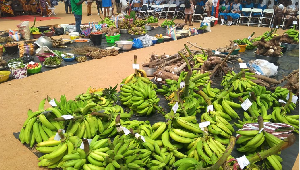Accra, May 3, GNA - The Chief Justice, Mrs. Justice Georgina
Theodora Wood, has stressed the importance of Alternative Dispute
Resolution (ADR) as an enduring feature of Ghana's legal system and one
that promises an improved and qualitative access to justice for all
Ghanaians. The Chief Justice made this assessment when she delivered the keynote
address on 93Alternative Dispute Resolution in Africa: The Ghana
Experience", at an awards dinner hosted by the Centre for African Peace
and Conflict Resolution (CAPCR) and Pan African Studies at the California
State University, Sacramento where she was honoured with the Centre's
2011 Peace Award. The award is the Centre's highest recognition of individuals whose w= ork
has contributed to peace-building and justice in/on Africa or the Diaspora in
exceptional ways. A statement issued in Accra by the Judicial Service said the award
underscored the Chief Justice's exemplary public and national leadership in
promoting and integrating Alternative Dispute Resolution (ADR) in the
reform of Ghana's judicial system and improving access to justice. Mrs. Justice Wood said in 2003, under the auspices of the National
Governance Programme (GNP), a judiciary ADR Task Force developed the
voluntary Court-Connected ADR model which was operational in all courts
apart from the commercial courts which practiced a mandatory model. "Mediation thus serves as the primary alternative to litigation for the
many ordinary citizens who access the courts for justice and yet lack the
financial resources to engage in endless litigation, so to speak. It thus w= orks
well in the lower courts in particular where the caseload is higher and mor= e
amenable to out of court settlement," the CJ said. The most successful model of the court connected ADR is found in the
commercial court. The courts which were established in 2005 afford investors in particul= ar,
the timely disposal of commercial and other investment related disputes. As part of the practice and procedure of the court, parties are mandat= ed
at the pre-trial settlement conference to explore the possibility of full o= r
partial settlement of their dispute. The Chief Justice said despite the success of ADR as an adjudicatory
tool, its implementation still faced challenges. "Challenges include the apathy of a legal fraternity that owing to the kind
of legal education members had received, tends to prefer litigation to ADR.
We do have judges and magistrates who in spite of the effectiveness of
ADR as a case management tool, tend not to invest time in promoting and
encouraging its appropriate use." The Chief Justice has provided ADR training locally for judges, lawyer= s,
the Ghana-American Chamber of Commerce and also Civil Society
Organisations. Her expertise in the subject has also been utilised externally. She co= -
authored the Practice Manual on the Gambian Court-Connected ADR
Programme and also provided training for the Gambian Bench, Bar and
court officials. The Faculty of Law of the University of Ghana, in celebrating its 40th
Anniversary in 1999, at which it conferred on her an honorary award for her
outstanding judicial career, cited for special mention her pioneering role in
the establishment of ADR as part of Ghana's judicial system. The statement said prior to addressing the awards dinner, the Chief
Justice attended the 20th Annual Africa/Diaspora Conference hosted by the
Centre at the California State University, Sacramento from April 28-30. The conference is a signature event in the western United States that
examines critical issues of strategic importance to Africa and the African
Diaspora.
General News of Tuesday, 3 May 2011
Source: GNA












